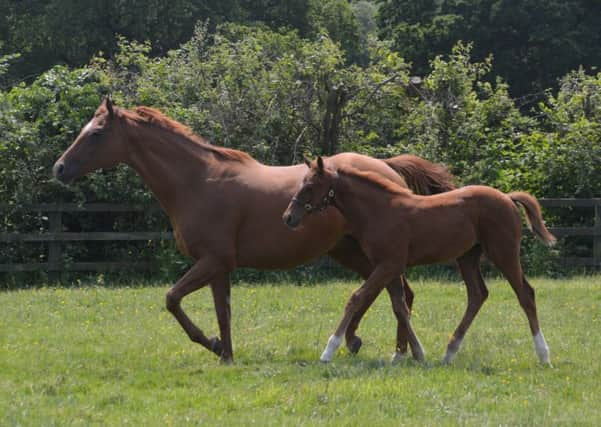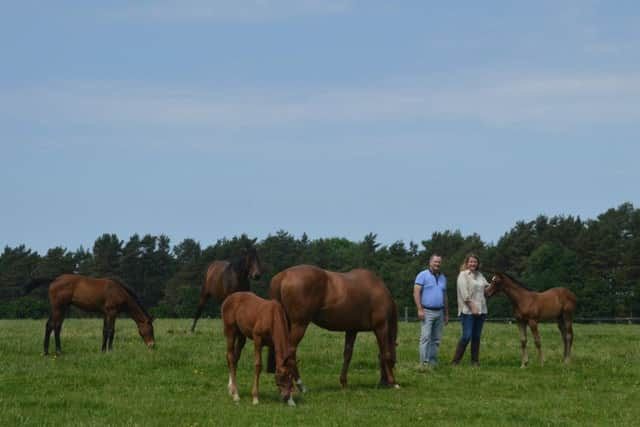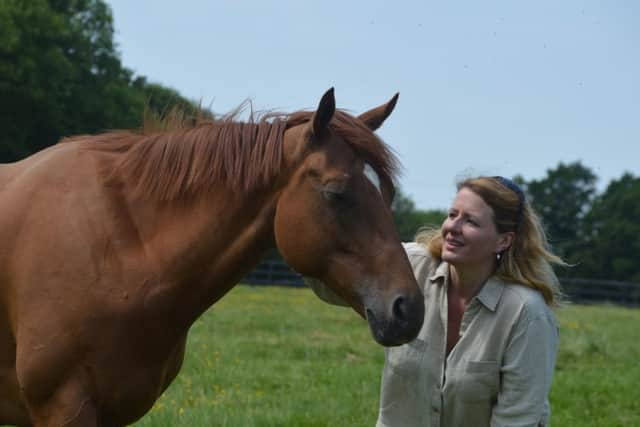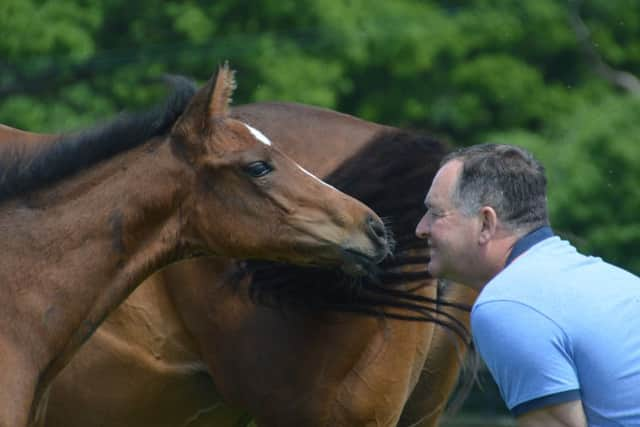A behind the scenes look at Westerlands Stud


With most things in life having the right attitude can get you far, but did you know the same can be applied to horses?
“You want a horse to have a positive attitude,” explains Antonia Jamison, managing director at Westerlands Stud. “But you don’t want it to be nasty. “Ideally you want a horse that if it gets knocked on the track it won’t cower, it will fight back and want to win.”
Advertisement
Hide AdAdvertisement
Hide Ad“You want a horse with an air of arrogance,” agrees Russell Boult, stud manager. “You want them to look you straight in the eye and be able to carry itself.”


Antonia and her family have been breeding racehorses in Graffham near Petworth since the 1980s, but the stud has been in existence for much longer.
“Lord Woolavington founded it in 1904,” reveals Antonia. “He had a number of studs but this was his favourite because of the soil.
“The land has a good mixture of chalk and sand so it keeps pretty dry, which is good when the horses are outside in all weathers.
Advertisement
Hide AdAdvertisement
Hide Ad“In the 1940s it was taken over by Florence Nagle. She was a formidable woman and in 1966 she became one of the first two women in the UK licensed to train racehorses, after overturning a high court ruling.”


Antonia’s family arrived here in the 1980s.
However even though she grew up surrounded by horses it wasn’t Antonia’s first career choice.
She started in private equity where she ran a portfolio of 22 start-up businesses, worked for the Body Shop, co-founded Blackwood’s gin, and was founding director at Sipsmith gin.
“Everywhere I have worked has led me back here,” she says.


“Wanting to do things naturally was something I learnt at the Body Shop and that feeling of wanting to produce the best product.”
Advertisement
Hide AdAdvertisement
Hide AdAntonia admits that as her children got older she decided she wanted to go back home.
“I realised though that things had to be done differently,” she reveals. “I made changes that we are now, four years later, starting to see the results of.”
With a number of brood mares, Antonia explains how the process works.
“The stallions we use are worth a lot of money so we take the mares to them,” she says. “You have to look at all the variables to get what you want.
Advertisement
Hide AdAdvertisement
Hide Ad“You look at the family it has come from, and the attributes of the stallions, and then pair it with a mare.
“We are always looking for that perfect horse but there is no such thing, there have been some that have come close but at the end of the day you have mother nature who does as she pleases.”
Breeding season is until June for the stud and the key is making sure the foals are born early.
“You don’t want a late birth as it will miss most of the racing season,” reveals Antonia. “It would mean they would only get to do one race rather than three or four.”
So what do Antonia and Russell look for in a horse?
Advertisement
Hide AdAdvertisement
Hide Ad“A good racehorse will have a presence and you can tell this by the way it carries itself,” admits Antonia. “You want the attitude but you also look at the way it walks as this can tell you a lot about the gallop.
“We also look at the hind and shoulders to see how it moves.”
Being able to pick out a horse is something that can’t necessarily be taught.
“It is about instinct,” reveals Russell. “You either have it or you don’t.”
Advertisement
Hide AdAdvertisement
Hide Ad“You can pick up things with experience,” adds Antonia. “If you stayed here long enough and got to know the horses, if you went to the races and there were horses from the same family you would see attributes that link back to the parents.
“Some foals take attributes from their mothers and sometimes the stallion will shine through.”
The staff all live on site and it is clear that to those who work at Westerlands Stud it is not just a job but a way of life.
I, for one, will certainly look at racehorses in a different light next time I find myself at the racecourse.